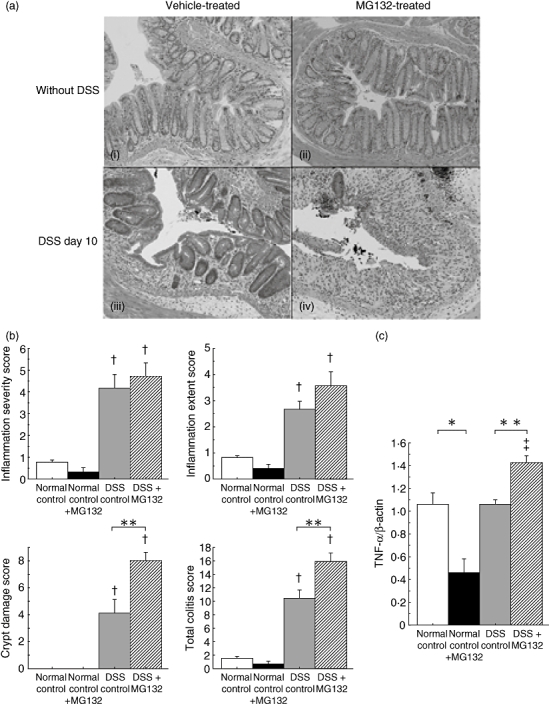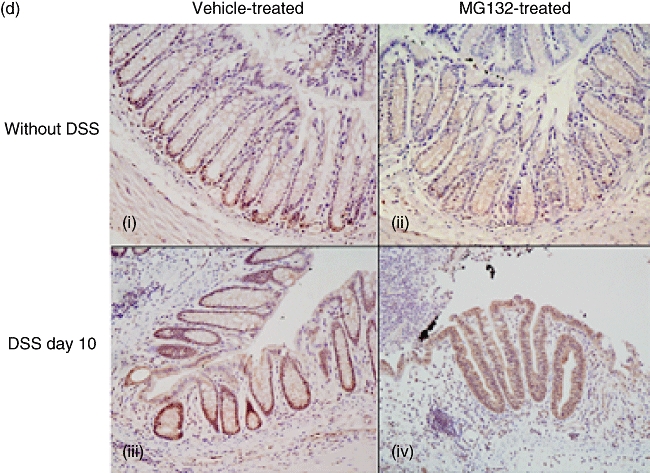Fig. 4.


The effects of MG132 on histological changes, tumour necrosis factor (TNF)-α gene expression and immunohistochemical staining of phospho-nuclear factor-kappa B (NF-κB) p65 in the colonic tissues of mice with dextran sulphate sodium (DSS)-induced colitis. (a) Histological findings of the rectum at necropsy (on day 10) stained with haematoxylin and eosin. (i) Vehicle-treated mice not administered DSS, (ii) MG132-treated (15·0 µmol/kg) mice not administered DSS, (iii) vehicle-treated mice with DSS-induced colitis and (iv) MG132-treated (15·0 µmol/kg) mice with DSS-induced colitis (original magnification 100×). (b) Histological scores of MG132-treated (15·0 µmol/kg) mice with DSS-induced colitis. The total colitis score is the sum of the three subscores (inflammation severity, inflammation extent, crypt damage score), which was quantified by the scoring system described by Williams et al. (n = 8 in each group). **P < 0·01 between vehicle-treated and MG132-treated mice with DSS-induced colitis. †P < 0·05 compared with respective normal mice not administered DSS. (c) TNF-α gene expression in the colonic tissues of MG132-treated (15·0 µmol/kg) mice with DSS-induced colitis (n = 8 in each group). *P < 0·05 between vehicle-treated and MG132-treated mice not administered DSS. **P < 0·01 between vehicle-treated and MG132-treated mice with DSS-induced colitis. (d) Immunohistochemical staining with anti-phospho-NF-κB p65 antibody. (i) vehicle-treated mice not administered DSS, (ii) MG132-treated (15·0 µmol/kg) mice not administered DSS, (iii) vehicle-treated mice with DSS-induced colitis and (iv) MG132-treated (15·0 µmol/kg) mice with DSS-induced colitis (original magnification 200×).
